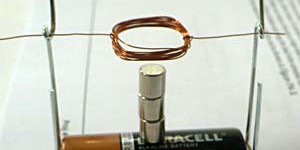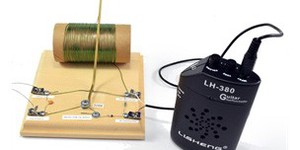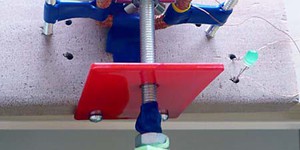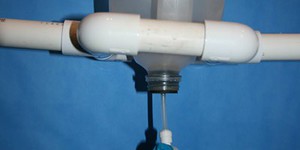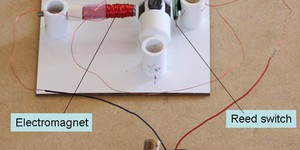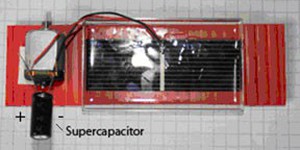Sixth Grade, Measure What an Electrical Device Does Science Projects (8 results)
Discover how electrical devices work as you experiment with, sometimes build, and test real working recorders, generators, radios, and more. Measure how changes you make affect how well your device performs.
|
When you think of a motor, you may immediately think of a car, but you actually encounter other motors in your home every day. That's right, if you put on clean clothes from the washing machine, ate food from the fridge, or used a fan, you used an electric motor. In this electronics science project, you will make a simple electric motor with two magnets that "talk" to each other. As they interact, they will alternate between "liking" each other (pulling together), and "disliking" each other…
Read more
Featured
Have you heard that garlic powder is supposed to inhibit the growth of bacteria? Which do you think would make a better disinfectant: a solution of garlic powder or a solution of bleach? This project shows you a straightforward way to compare the effectiveness of different disinfectants (or other antimicrobial agents), by measuring zones of inhibition on a culture plate.
Read more
Have you ever wondered how a radio can grab signals that are transmitted through the air and convert them into sound? In this science project, you will build your own AM radio receiver from scratch and use it to listen to AM radio broadcasts. With your crystal radio you will be able to experiment with the circuit and the antenna to get the best reception.
Read more
New
Does your dog get bored when you are not home? Do you ever toss them a few treats right before you head out the door? What if you could keep them busy by automatically dispensing treats throughout the day? What about training them to sit in a certain place or even press a button by automatically rewarding them with treats? In this project you will build your own automatic dog (or cat, or other pet) treat dispenser that you can customize to react to different sensors.
Read more
Every day, no matter where you are, you will see people using their cell phones. People use their cell phones for
more than just making calls though. They use them for texting and searching the Internet, too. But some health groups
are concerned that using your cell phone too much can be hazardous to your health as it exposes your body to electromagnetic radiation. In this electricity and electronics
science project, you will investigate how much radiation your cell phone emits when used…
Read more
In this science project, you will build what might be the world's simplest motor. It has just four basic parts: magnets, a battery, a screwdriver, and a short piece of wire. It takes only minutes to assemble, but it provides a wonderful device to explore how electricity and magnetism combine to produce a fast-spinning motor.
Read more
The electricity in your home probably comes from a power plant, but did you know that you can actually generate your own electricity? Wondering what it would take to light up a small light? This is your chance! In this electronics science project, you will build your own electric generator and investigate how to light up not just one, but two lights.
Read more
New
Artificial intelligence (AI) programs can now generate photorealistic pictures of people who do not exist in the real world. How can you tell if a picture is of a real person or a fake, AI-generated person? What features of the picture do people use to decide whether the face is real or AI-generated? In this project, you will explore these questions as you ask volunteers to look at both real and AI-generated pictures of human faces.
Read more
Water is an interesting thing. We drink it, swim in it, and wash ourselves with it. We can get energy from
water by damming it and sending it through a turbine. But did you know that we can use the natural electrical
charges present in water and a Kelvin electrostatic generator to create sparks? You can even use a
Kelvin electrostatic generator to temporarily light a bulb! Now that is one bright idea!
Read more
Motors are used in many things you find around your house, like your refrigerator, coffee maker, and even a lawn mower. In this electronics science fair project, you will get to build a simple motor, using a kit, and then test how the number of batteries (amount of voltage) used to power the motor affects its performance.
Read more
Solar cells are devices that can be used as a source of power when there is light shining on them, but they stop producing energy when they are not in the light. One way to store the solar energy for later use is to use a solar cell to charge something called a capacitor. The capacitor stores the energy as an electric field, which can be tapped into at any time, in or out of light. In this electronics science project, you will use parts of a solar car to experiment with the energy storage…
Read more
|
Explore Our Science Videos
Paper Rockets - STEM Activity
Paper Bridges STEM Activity
Make a Hygrometer to Measure Humidity – STEM activity


